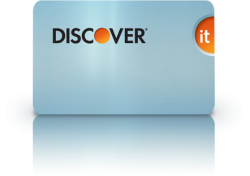With Discover, will Google get the traction it needs for Wallet?


Sometimes it just feels like the only news in the technology industry is about mobile payments, you know? Goodness gracious.
Discover Financial, the company behind the eponymous credit card, announced this morning that it has partnered with Google to offer its Wallet mobile payment service to cardmembers.
The partnership will allow Discover's customers to tap and pay for purchases in-store using a smartphone with near-field communications, or NFC, technology. It will also support online, web-based purchases.
At the company level, the deal is pretty straightforward: Discover gets a way to keep payments flowing through its interbank networks, and Google taps a huge customer base (almost 50 million people) to spur adoption of its latest product.
It's the latter point that's most interesting. Google has been on a tear to partner with or acquire winning companies to enter new areas of business; this is another high-profile example.
It's not just smart business, however. Google is increasingly mindful of Apple has both companies cut ties with each other and partner with competing companies to shore up defenses. Mobile payments is the newest area where the chasm is growing.
ZDNet editor-in-chief Larry Dignan said as much earlier this month:
Apple has worked with Facebook, Twitter, Yelp and others to integrate them into iOS. Google relies on its own brands---Google+, Gmail, Zagat---to make Android unique.
The pressure on Google increased after Apple introduced PassBook as part of its iOS 6 preview. In this case, however, it's not a matter of technology or services support, but customers: which banks and credit card companies will each tech company partner with to build out its digital wallet?
To date, Google has Citibank (which uses Mastercard) and now Discover in its corner. Visa, American Express and others have yet to pick a side -- though each of those companies is developing its own digital wallet of sorts (V.me and Serve, respectively). And then there's PayPal and other web-first services.
These financial firms don't want a tech company encroaching on their turf, but the cold reality of it is that they control the device, and thus the pipeline. Neither side can win on its own; like e-books and digital movie downloads and any other such industry collision, it will all come down to a frothy mix of customer pressure and terms negotiations.
For Google and Apple and other device makers, the question is which institutions -- and therefore customers -- they can count in their corner before the other guy gets them.